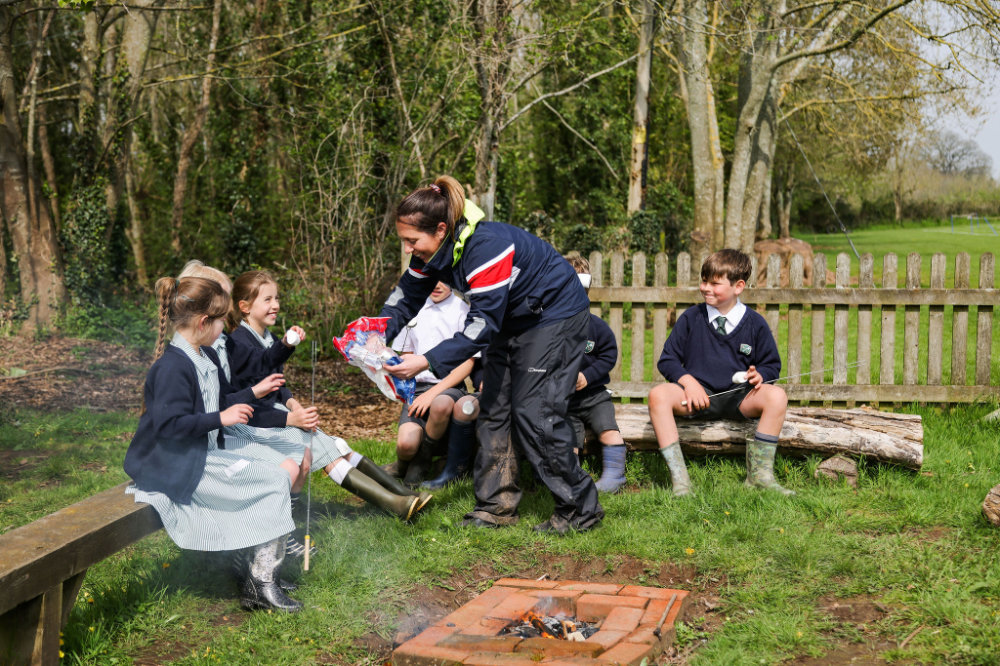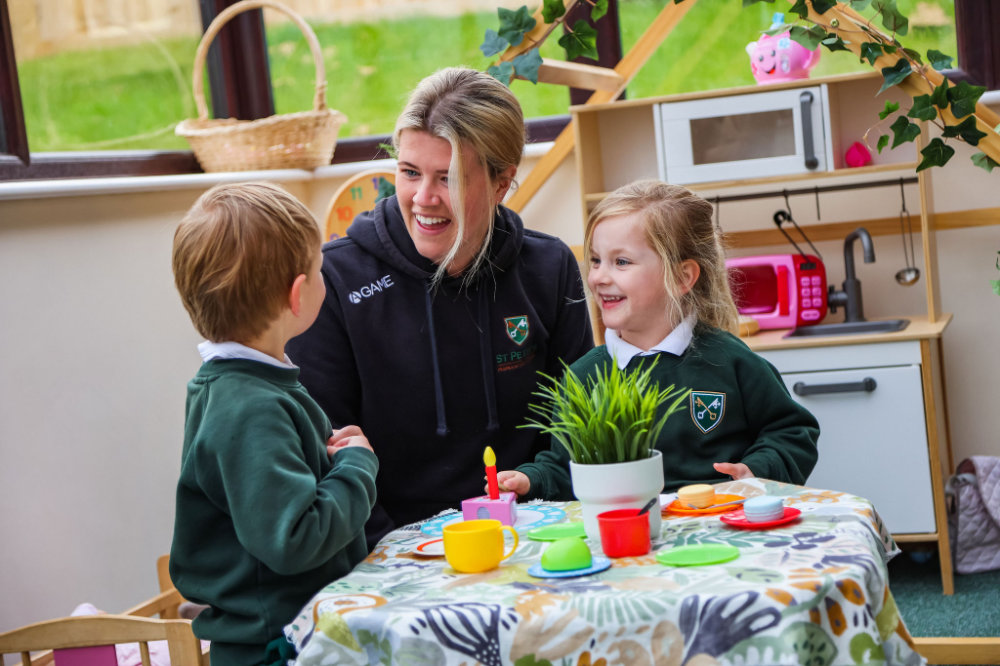Often, family life can be a hive of activity, with parents and children running from one task to the next. Traditions and scheduled activities that bring everyone together can provide a break from the busyness of modern life.
Traditions are sometimes taken for granted but they are hugely important, particularly for young children as they develop. Here at our private school in Devon, we take great care in nurturing traditions, ensuring they are passed down through generations.
What are Traditions, Exactly?
When we think of traditions, we often think of big events like birthdays or Christmas. However, traditions can include any customs or routines that are passed down through generations.
Things as small as Sunday dinners, weekend walks or bedtime stories all count as traditions, alongside bigger celebrations or family gatherings.
Why do we care for traditions so much? Because they can do so much good! Here are just some of the main benefits families (and schools) can enjoy through the development of traditions.
Create a Sense of Belonging
Traditions are vital for helping form our identities, particularly as children. Whether your identity is national, cultural, or anything else, regular traditions are a way to celebrate our families and the wider communities that shape us.
Many traditions have a historical precedence, with some stretching back through countless generations. These activities allow younger children to emotionally connect with their parents, grandparents and beyond, fostering an improved sense of identity and self-confidence.
Such traditions are not just good for historical connections, they can also help promote improved relationships among our current generations. Traditions such as holiday baking can allow little ones and elders to come together to celebrate who they are, fostering relationships throughout the family.
Support Consistency and Routine
We speak a lot about how important routines and consistency can be for developing children, and also for adults. Traditions are vital for developing these routines in our lives.
Remember, traditions don’t have to be grand events or celebrations. Even something as simple as a family meal every Sunday where everyone shares how their week went can be a huge positive. Traditions like these are great for slowing everyone down, giving people a moment where they know they can connect and reflect.
These small traditions can become touchstones for children as they grow up, moments in time they can look forward to (and look back on) knowing that they will always be there. The consistency and security that traditions provide can help contribute to better mental health in children.

Develop Fond Memories
When you think back to your memories as a child; how many of them revolve around traditions? Whether it’s day trips, special meals or family crafts, it’s often these events that stick out.
Because traditions disconnect us from the busyness of everyday life – sometimes for just a few minutes – these seemingly commonplace moments end up producing really special memories.
These memories we make are really important, providing us with a sense of belonging that can last a lifetime.
Develop Cultural Values
There are certain things we learn that can’t be taught in a classroom or learned from a book. Often, intangible behaviours that we find important are best shared through family traditions.
Some traditions might explicitly teach children about certain values. For example, Christmas for many is a time of giving presents, promoting the importance of kindness.
However, even quite simple traditions may encourage certain values. For example, a weekly bike ride or country walk can promote the importance of exercise or an increased care for nature.
While it might not feel like the most important part of traditions, these values can help foster an increased understanding of the world, leading to a deeper sense of gratitude and appreciation in daily life.
These are just some of the main benefits that traditions can bring to both families and other communities. Of course, everyone has unique traditions, and you’ll certainly discover even more benefits unique to your family.
Traditions and routines play a big part in life here at St Peter’s Prep. If you would like to know more about us, why not request a prospectus today? Alternatively, you can contact us and we’ll answer any questions you may have.








